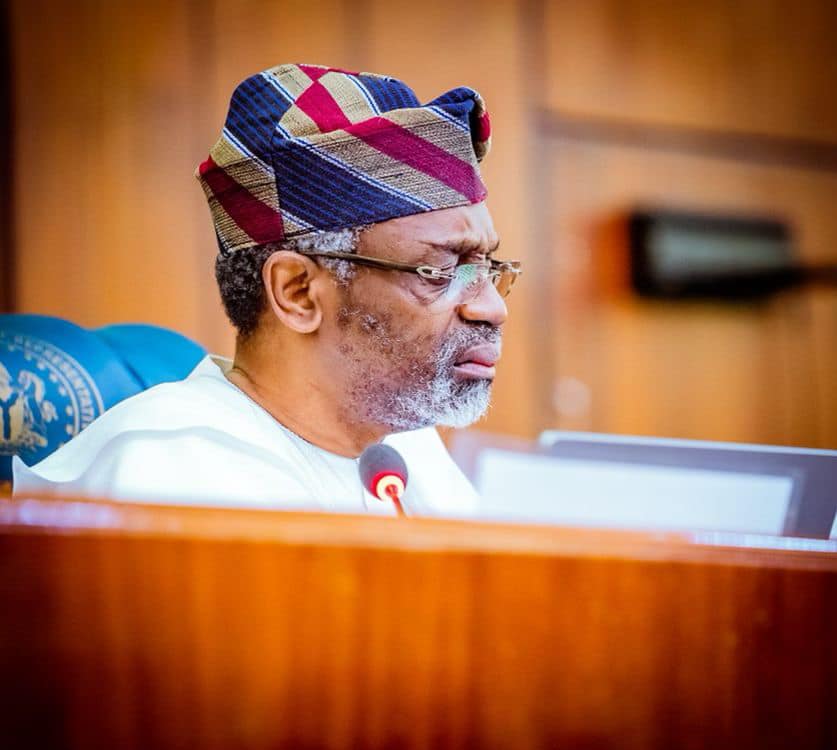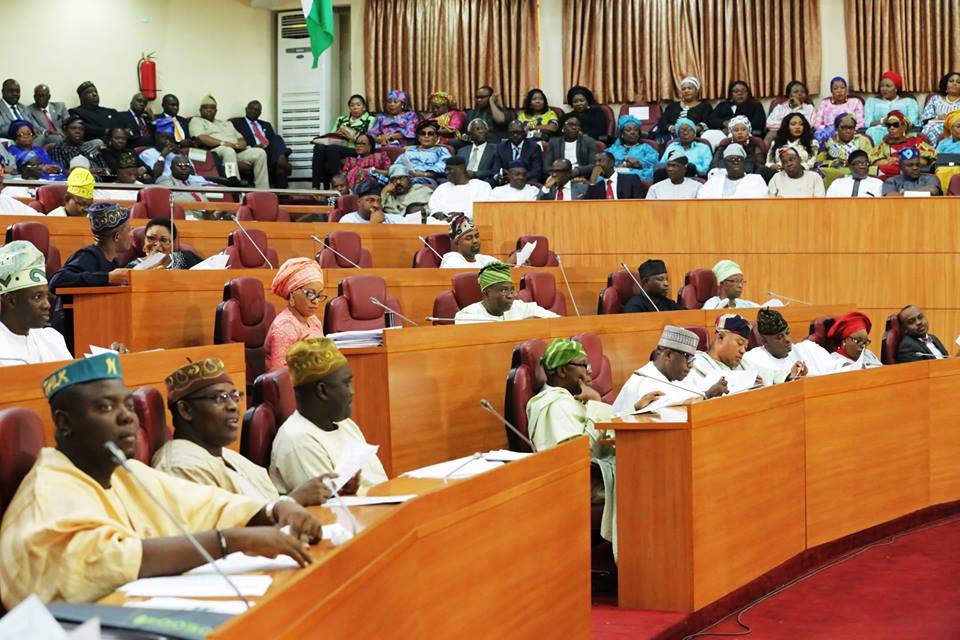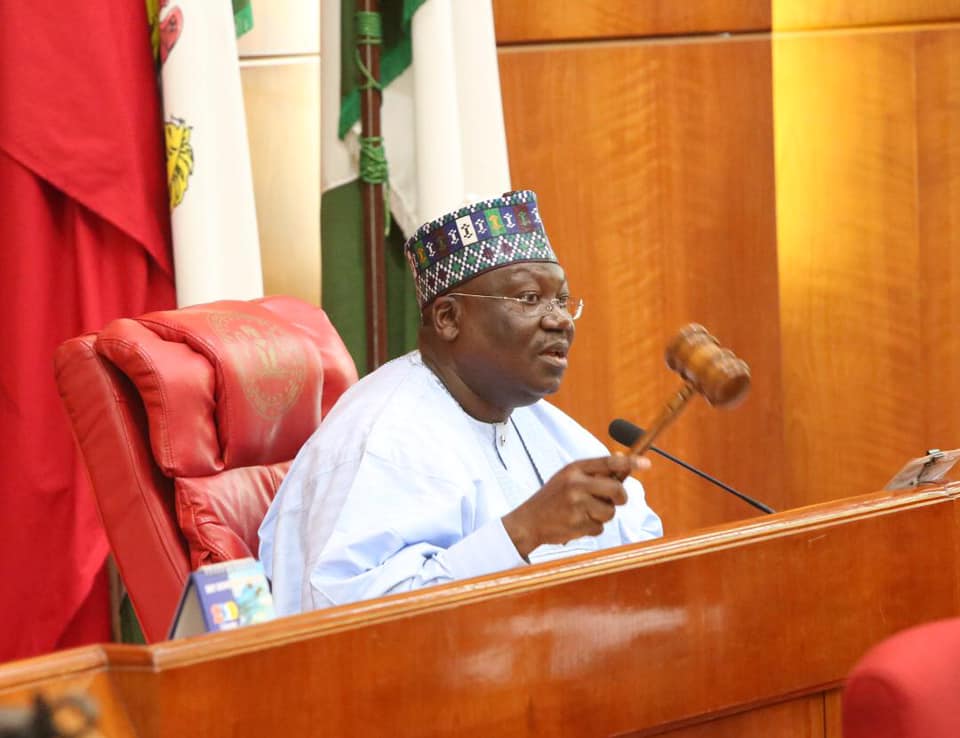Economy
House Gives Buhari Approval to Present N13.98tn Budget for 2022

By Aduragbemi Omiyale
The federal government has been given the approval to present to the National Assembly a budget of N13.98 trillion for the 2022 fiscal year.
This authorisation was given on Tuesday by the House of Representatives when it passed the 2022-2024 Medium Term Expenditure Framework/Fiscal Strategy Paper (MTEF/FSP) barely a week after the Senate passed the same document.
This followed the presentation of the MTEF/FSP report before members of the green chamber of the parliament yesterday by the Chairman, Committee on Finance, Mr James Faleke.
Business Post reports that in July 2021, President Muhammadu Buhari had forwarded the MTEF/FSP document to the legislative arm of government for approval. It was later handed over to the committee for action and yesterday, the report was laid by Mr Faleke.
In the report, it was said that revenue of N8.36 trillion would be retained, while the total fiscal spending plan of N13.98 trillion for next year was approved, comprising total recurrent (non-debt) of N6.21 trillion, personnel costs (MDAs) of N3.47 trillion, capital expenditure (exclusive of transfers) N3.26 trillion, special intervention (recurrent) of N350 billion, and special intervention (capital) of N10 billion.
Also, the House said it has no issue with the proposed fiscal deficit of N5.62 trillion, new borrowings of N4.89 trillion subject that the provision of the details of the borrowing plan be brought for approval by the parliament, while statutory transfers of N613.4 billion were okayed.
The lower arm of the National Assembly also put the debt service estimate at N3.12 trillion, the sinking fund at N292 billion, and pension, gratuities and retirees benefits at N567 billion.
On daily crude oil production, the House approved 1.88mbpd, 2.23mbpd, and 2.22mbpd for 2022, 2023 and 2024 respectively “in view of average 1.93mbpd over the past three (3) years and the fact that a very conservative oil output benchmark has been adopted for the medium term in order to ensure greater budget realism.”
As for the crude oil benchmark, $57 per barrel was approved for 2022, $55 for 2023 and 2024 “based on oil forecast by the World Bank and consultation with the Nigerian National Petroleum Corporation (NNPC).”
Similarly, the exchange rate of N410.15/$1 was approved for 2022-2024 as proposed by the executive arm of government, while the projected gross domestic product (GDP) growth rate of 4.20 per cent was also approved, with the projected inflation rate was put at 13.00 per cent.
In a statement issued by the reps, it was stated that, “That there should be a continuous review of the Fiscal Responsibility Act to ensure that all revenues are remitted to the Consolidated Revenue Fund (CRF) as at when due, in order to curtail frivolous deductions and diversion of funds by the Ministries Department Agencies.”
In addition, it was said that all laws relating to mining businesses should be reviewed as a matter of urgency to ensure upward review of rates applied to royalties, ground rent and licenses renewal of all mining companies operating in Nigeria to ensure transparency in the collection of revenue by the relevant agencies of the government and also look into the issues of illegal mining activities by recommending stringent sanctions in the proposed new laws.
Furthermore, the House advised the Nigeria Customs Service to accelerate the process of installing scanners at all ports across the country to curb the issue of underpayment of customs duties on imported goods which has resulted in huge loss of revenue to the government and to further improve its activities at all borders across the country in order to curb the issues of smuggling across border areas.
“The Committee recommends urgent implementation of the Petroleum Industry Act (PIA) recently assented to by the President in order to curtail the problems of smuggling and round-tripping of petroleum products imported into the country to save the under-recovery cost,” the statement noted.
The parliament suggested that “the offices of the Accountant General (AGF), Auditor General of the Federation (AuGF) and Fiscal Responsibility Commission (FRC) be strengthened in the area of staffing and proper funding of its activities to ensure optimal performance of their duties in order to adequately monitor the remittances of all government revenues,” while the “Act establishing some MDAs be reviewed and amended as a matter of urgency to evidence a more nationalistic interest, as these amendments will assist to generate more revenue to the coffers of the government.”
In the statement, the House urged that the federal government budget should be “reviewed and be purged of some agencies that demonstrated capacity to stand on their own without any recourse to Federal Government of Nigeria Budget for example; National Agency for Food and Drug Administration and Control (NAFDAC) and Nigerian College of Aviation Technology, Zaria (NCAT).”
Economy
Nigeria to Export New Crude Grade Cawthorne in March

By Adedapo Adesanya
The Nigerian National Petroleum Company (NNPC) Limited is set to commence export of a new light, sweet crude grade known as Cawthorne from March 2026.
According to a report by Reuters, an NNPC spokesperson confirmed the development, describing it as part of efforts to increase output and consolidate Nigeria’s recent recovery in crude oil production.
The move aligns with Nigeria’s broader strategy to boost production after years of constraints caused by pipeline vandalism, crude theft, and unrest in oil-producing regions.
This follows the launch of two other new grades, Obodo in 2025 and Utapate in 2024, Nigeria, whic,h as Africa’s top oil exporter, seeks to strengthen its standing within the Organisation of the Petroleum Exporting Countries and its allies (OPEC+)
Cawthorne crude is scheduled for export in the third week of March and has an API gravity of 36.4, making it similar in quality to Nigeria’s Bonny Light, which is prized for high petrol and diesel yields.
According to Reuters, citing a trading source, the state oil national company issued a tender last week for cargo loading between March 24 and 25.
Analysts at Kpler noted that the new grade is expected to be exported via the Floating Storage and Offloading (FSO) vessel Cawthorne, which has a storage capacity of about 2.2 million barrels. The vessel is designed to enhance transportation and production from Oil Mining Lease (OML) 18 and nearby assets in the Eastern Niger Delta.
Kpler estimates that, based on storage capacity, Cawthorne could increase Nigeria’s crude and condensate output from roughly 1.65 million barrels per day to around 1.7 million barrels per day for the remainder of the year.
Nigeria’s crude oil production recently dropped from the OPEC+ quota of 1.5 million barrels per day, with output at 1.48 million barrels per day recorded in January, according to OPEC data.
Beyond increasing Nigeria’s crude offerings to the international market, the introduction of Cawthorne could also attract buyers seeking specific light, sweet crude qualities, buoy foreign exchange earnings, which would help strengthen government revenue and ease borrowing needs.
New crude grades are typically differentiated by sulfur content, API gravity, and production source, enabling producers to target specific refinery configurations and market segments.
In November 2024, NNPC officially launched the Utapate crude oil blend in the international market, describing it as a milestone for Nigeria’s export profile.
Earlier in July 2024, NNPC and its partner, Sterling Oil Exploration & Energy Production Company (SEEPCO), lifted the first 950,000-barrel cargo of Utapate crude, which was shipped to Spain.
Economy
Moniepoint Research Shows Diminishing Role of Cash in Nightlife Payments

By Modupe Gbadeyanka
A new report released by Africa’s leading all-in-one financial ecosystem, Moniepoint Incorporated, has revealed that the use of cash for financial transactions is gradually dying due to security concerns.
The study, which looked into transaction data of over 27,000 clubs, bars, and lounges, showed that bank transfers dominated, followed closely by card payments, with cash actively discouraged. It was observed that transfers outpace card payments by nearly 2 million transactions during peak nighttime hours across its network.
In the research titled The Business of Community Nightlife in Nigeria, findings provided a rare, data-driven look into the country’s informal night economy.
While high-end Detty December venues grabbed headlines with daily revenues of N360 million and table prices reaching N1.2 million, Moniepoint’s study shifted the spotlight to the “community nightlife” where roadside bars, suya spots, and neighbourhood joints form the bedrock of social life for millions of Nigerians.
One of the study’s most operationally significant findings concerns the timing of spending. Nightlife in Nigeria runs late, but economically, the night is decided early.
Transaction volumes begin climbing sharply from 8 pm, peak before midnight, and then decline steadily even as venues remain full. By the time the night is at its longest, purchasing activity has already wound down.
However, for bar operators, this has clear practical implications – the most critical hours for staffing, stocking, vendor payment and cash flow management are the earliest hours of the day between midnight and 6 am.
The report further underscores the sector’s role in employment, noting that local bars typically expand their workforce by 30-50 per cent on peak nights. Conservative estimates suggest that at least 54,000 people are engaged in nightlife labour every night across Nigeria.
It was also observed that the most common transaction narrations from the data sourced – “food”, “pay”, “sent”, “pos”, “cash” – reflect the full breadth of nightlife spending: street food, club entry, lounge tabs, transport, and afterparties. Digital payments have gained huge traction in Nigeria’s social space.
While alcohol remains a key revenue driver, the data shows that food is the quiet stabiliser of Nigeria’s night economy, particularly in local and informal settings. In several neighbourhood venues, bottled water and meals outsell beer and spirits, especially early in the evening.
Lagos leads in sheer concentration of nightlife establishments, with 4,856 bars, clubs, and lounges on the Moniepoint network. FCT follows with 2,515, then Rivers (2,362), Delta (1,930), and Edo (1,574).
Katsina leads the country in nighttime food truck payment value, with vendors pulling in over N130 million in the last 12 months. Kwara State leads in transaction count. Nigeria’s nightlife economy is distributed, not overly elitist.
On the lending side, the report noted that a significant share of loan requests from bar and lounge operators is directed toward renovations, furniture, lighting, and sound systems, showing that investments are intended to attract and retain customers in a competitive sector where ambience plays a decisive role.
Commenting on the report, the chief executive of Moniepoint, Mr Tosin Eniolorunda, said, “Nigeria’s local bars and night-time operators are not peripheral to the economy; they are a critical part of its architecture. We see a substantial and sustained economic sector that employs hundreds of thousands of Nigerians every night and deserves the same attention we give to agriculture, healthcare, and retail.
“Our goal is to make sure every one of those businesses has the tools to grow. From giving credit to finance renovations and sound systems to providing same-day settlement that allows vendors to restock and with tools like Moniebook that power inventory management and reconciliation, Moniepoint is ensuring that this vital artery of the nation’s economy remains viable and empowering.”
Economy
CBN Reduces Interest Rate by 50 Basis Points to 26.50%

By Adedapo Adesanya
The Central Bank of Nigeria (CBN) has cut the interest rate by 50 basis points to 26.50 per cent from 27 per cent.
Nigeria’s apex bank announced this during its two-day 304th Monetary Policy Committee (MPC) meeting, which concluded on Tuesday in Abuja.
This comes after the country’s interest rate cooled in January to 15.10 per cent from 15.15 per cent, according to the National Bureau of Statistics (NBS), strengthening the case for a reduction.
The CBN Governor, Mr Yemi Cardoso, said all members of the MPC unanimously agreed upon the decision.
“The committee decided to reduce the monetary policy rate by 50 basis points to 26.50 per cent,” he said.
Mr Cardoso stated that the liquidity ratio was maintained at 30 per cent, and the standing facilities corridor was adjusted to +50 to -450 basis points around the monetary policy rate.
He said the committee retained the Cash Reserve Ratio (CRR) at 45 per cent for commercial banks and 16 per cent for merchant banks, while the 75 per cent CRR on non-TSA public sector deposits was equally maintained.
The CBN uses the MPR, which works as the benchmark interest rate, to manage inflation, macroeconomic stability, and liquidity.
Last November, the MPC retained the Monetary Policy Rate (MPR) at 27.00 per cent. The last time the apex bank cut interest rates was in September last year, to 27 per cent from 27.50 per cent after a series of easing in inflation.
Market analysts had argued for higher interest cuts due to results seen in the CBN’s inflation targeting framework. Meanwhile, some say the 50 basis points reduction will offer a temporary reprieve as inflation heads for a single-digit target in the coming months.
-

 Feature/OPED6 years ago
Feature/OPED6 years agoDavos was Different this year
-
Travel/Tourism10 years ago
Lagos Seals Western Lodge Hotel In Ikorodu
-

 Showbiz3 years ago
Showbiz3 years agoEstranged Lover Releases Videos of Empress Njamah Bathing
-

 Banking8 years ago
Banking8 years agoSort Codes of GTBank Branches in Nigeria
-

 Economy3 years ago
Economy3 years agoSubsidy Removal: CNG at N130 Per Litre Cheaper Than Petrol—IPMAN
-

 Banking3 years ago
Banking3 years agoSort Codes of UBA Branches in Nigeria
-

 Banking3 years ago
Banking3 years agoFirst Bank Announces Planned Downtime
-

 Sports3 years ago
Sports3 years agoHighest Paid Nigerian Footballer – How Much Do Nigerian Footballers Earn














